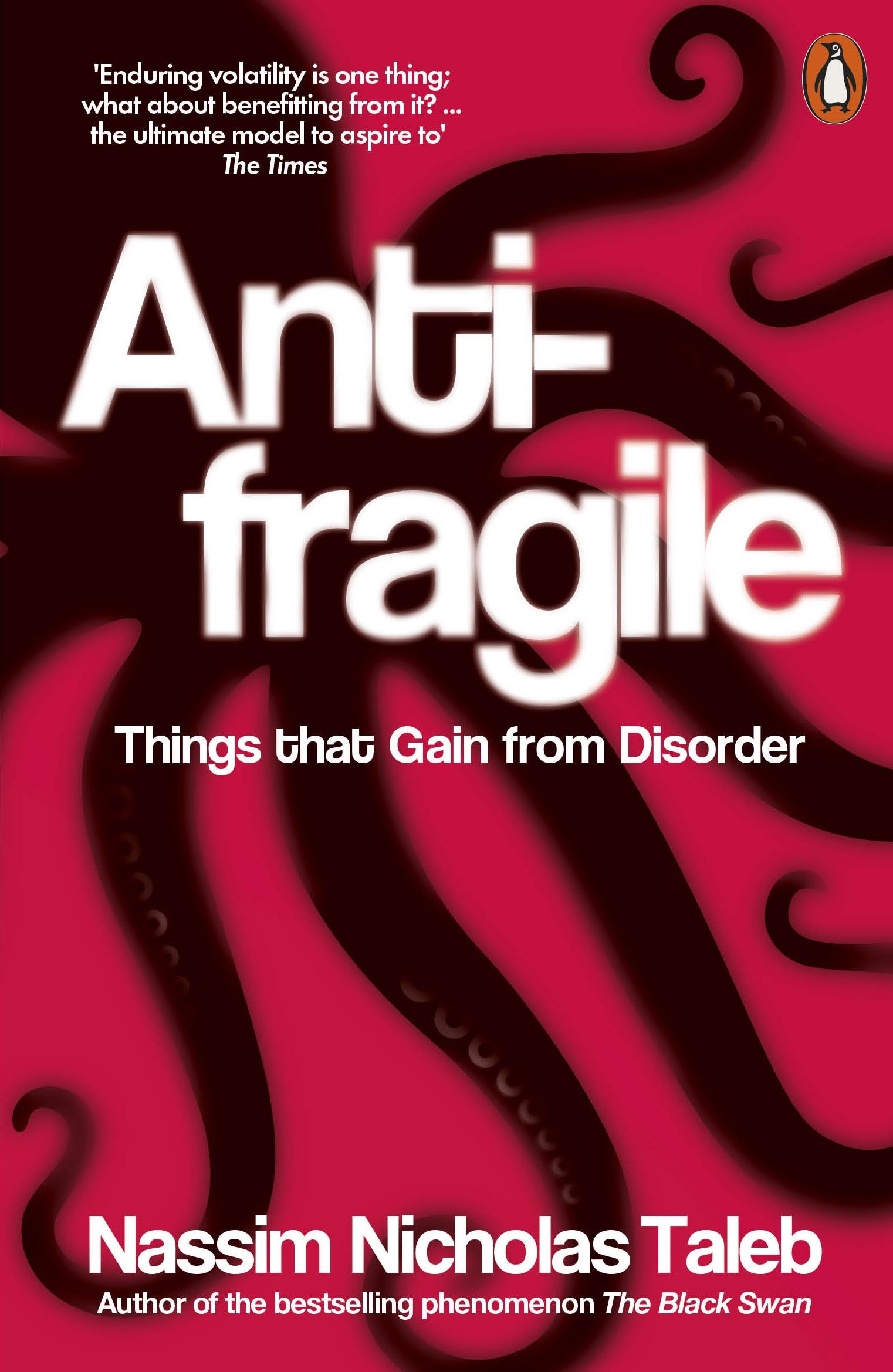
Antifragile
Nassim Taleb
Antifragile is beyond resilience or robustness. The resilient resists shocks and stays the same; the antifragile gets better. [...] It is far easier to figure out if something is fragile than to predict the occurrence of an event that may harm it. Fragility can be measured; risk is not measurable (outside of casinos or the minds of people who call themselves "risk experts"). This provides a solution to what I've called the Black Swan problem – the impossibility of calculating the risks of consequential rare events and predicting their occurrence.
I have made the claim that most of history comes from Black Swan events, while we worry about fine-tuning our understanding of the ordinary, and hence develop models, theories, or representations that cannot possibly track them or measure the possibility of these shocks.
You get pseudo-order when you seek order; you only get a measure of order and control when you embrace randomness.
We have the illusion that the world functions thanks to programmed design, university research, and bureaucratic funding, but there is compelling – very compelling — evidence to show that this is an illusion, the illusion I call lecturing birds how to fly. Technology is the result of antifragility, exploited by risk-takers in the form of tinkering and trial and error, with nerd-driven design confined to the backstage. Engineers and tinkerers develop things while history books are written by academics.
It is all about redundancy. Nature likes to overinsure itself.
There exist the kind of people for whom life is some kind of project. After talking to them, you stop feeling good for a few hours; life starts tasting like food cooked without salt.
When you are fragile, you depend on things following the exact planned course, with as little deviation as possible — for deviations are more harmful than helpful. This is why the fragile needs to be very predictive in its approach, and, conversely, predictive systems cause fragility.
We are fragilizing social and economic systems by denying the stressors and randomness, putting them in the Procustean bed of cushy and comfortable modernity.
Nature loves small errors, humans don't — hence when you rely on human judgment you are at the mercy of a mental bias that disfavours antifragility. We humans [...] naively fragilize systems — or prevent their antifragility — by protecting them. In other words, a point worth repeating every time it applies, this avoidance of small mistakes makes the large one more severe.
The problem with artificially suppressed volatility is not just that the system tends to become extremely fragile; it is that, at the same time, it exhibits no visible risks. Also remember that volatility is information. In fact, these systems tend to be too calm and exhibit minimal variability as silent risks accumulate beneath the surface.
Modernity is not just the postmedieval, postagrarian, and postfeudal historical period as defined in sociology textbooks. It is rather the spirit of an age marked by rationalization (naive rationalism), the idea that society is understandable, hence must be designed, by humans. [...] Modernity is a Procustean bed, good or bad — a reduction of humans to what appears to be efficient and useful.
Time is the best test of fragility — it encompasses high doses of disorder — and nature is the only system that has been stamped "robust" by time.
The rational flâneur is someone who, unlike a tourist, makes a decision at every step to revise his schedule, so he can imbibe things based on new information. [...] The flâneur is not a prisoner of a plan. Tourism, actual or figurative, is imbued with the teleological illusion; it assumes completeness of vision and gets one locked into a hard-to-revise program, while the flâneur continuously — and, what is crucial, rationally — modifies his targets as he acquires information.
You don't have to be right that often. All you need is the wisdom to not do unintelligent things to hurt yourself.
We notice what varies and changes more than what plays a large role but doesn't change.
If there is something in nature you don't understand, odds are it makes sense in a deeper way that is beyond your understanding. [...] What Mother Nature does is rigorous until proven otherwise; what humans and science do is flawed until proven otherwise.
Things break on a small scale all the time, in order to avoid large-scale generalized catastrophes.
Theories come and go; experience stays. Explanations change all the time, and have changed all the time in history, with people involved in the incremental development of ideas thinking they always had a definitive theory; experience remains constant.
The best way to verify that you are alive is by checking if you like variations. Remember that food would not have a taste if it weren't for hunger; results are meaningless without effort, joy without sadness, convictions without uncertainty, and an ethical life isn't so when stripped of personal risks.